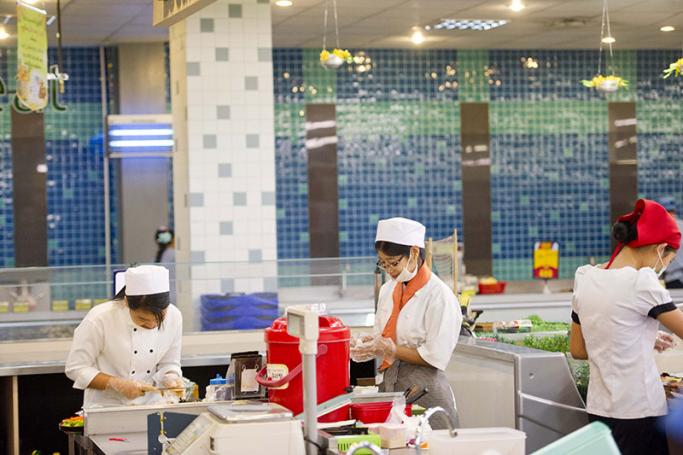How are things is Myanmar’s workplaces? A survey on workplace happiness with over around 5,000 employees was conducted by the country's largest employment website, Jobnet.com.mm. The survey resulted that just 46 percent of those who participated in a survey were satisfied in the workplace.
The results showed only 5% who responded were dissatisfied in their workplace due to the wages, but surprisingly 14% who answered were very satisfied at work for salary reasons.
“In order to be happy at work, employees should consider not only the salary but benefits of development, learning opportunities at the workplace and convenient work location,” said JobNet VP of Sales, Ma Zin Mar.
Understanding what motivates employees in their job search and decision to remain in a role will not only allow employers to better engage with their staff, but also increase their employees' job satisfaction and as a result, the productivity of their workforce.
Respondents were a good mix of position levels ranging from fresh graduates to supervisorial and managerial positions and even top management, from all around Myanmar. Many having stayed in their current jobs for varying lengths of time, and representing various specializations and industries. The Participants included 42 percent of women and 58 percent were men.
Daily wage earner and entry-level employees are less happy with their jobs. The major reason of this issue is low salary. Then followed other dissatisfied factor including unhealthy relationship with colleagues and the Management team is the second reason most stated.
“In order to assess one’s capacity and capability, his or her happiness at workplace takes an important part. The employees who enjoyed their job delivered higher performance and were more active at their work,” Ma Zin Mar commented.
According to JobNet’s clients, including Myanmar Distribution Group, HR Manager, Daw Myint Myint Khaing, stated that the entry-level staffs turnover rate is higher than any position in their company and 70 % of the resignation are due to stress. She added that the turnover rate in their company is very high and they have to recruit around 50 new staffs per month to fill the gap.
According to JobNet's international experience, creating an atmosphere of growth by providing training and development opportunities will also help contribute to staff engagement and increase satisfaction at the workplace.
Currently, Myanmar working labor force is about 31 million people, according to the latest World Development Indicators data. The share of the working age population (15–64) is about 70 of the total, the fifth highest among ASEAN countries. Furthermore, about 40 of the working-age population is between 15 and 29, and women account for almost half of the labour force.
Given the rapid growth of Myanmar’s economy, employers will have more challenges and also opportunities to attract the best talent, and retain that talent effectively if they are to be successful.
You are viewing the old site.
Please update your bookmark to https://eng.mizzima.com.
Mizzima Weekly Magazine Issue...
14 December 2023
New UK Burma sanctions welcome...
13 December 2023
Spring Revolution Daily News f...
13 December 2023
Spring Revolution Daily News f...
12 December 2023
Spring Revolution Daily News f...
11 December 2023
Spring Revolution Daily News f...
08 December 2023
Spring Revolution Daily News f...
07 December 2023
Diaspora journalists increasin...
07 December 2023
Pink 'soul refresher' drink unites wilting Indians and Pakistanis












